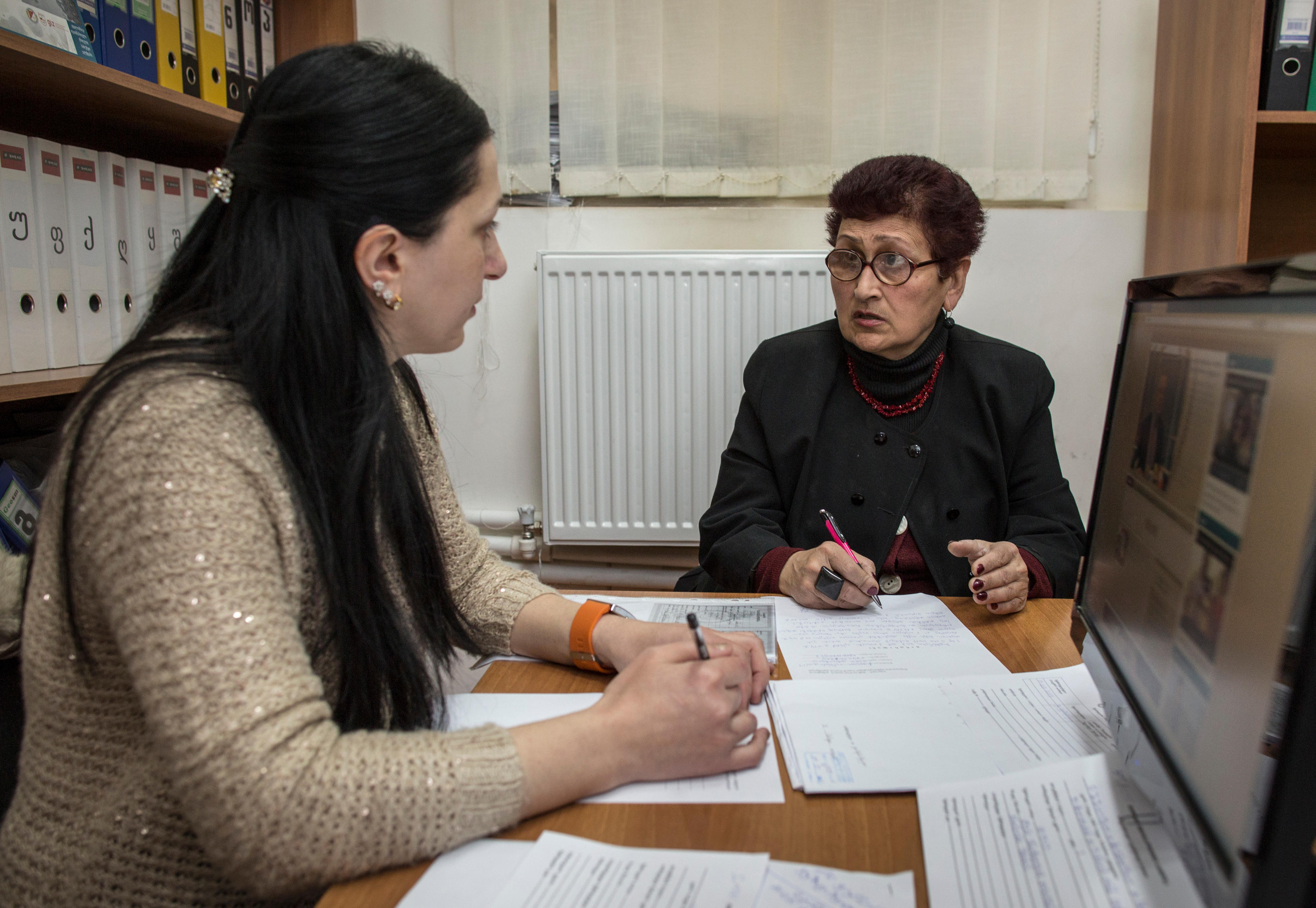Background Increasing transparency and responsiveness to citizens’ concerns through local governance
An employee of the citizens' office of the municipality of Telavi (Georgia) advises a citizen.
Germany therefore supports its partner countries’ efforts to establish efficient, transparent and accountable public administrations. That lays the groundwork that enables the state to perform its key functions, like delivering essential services and ensuring both public and national security. Functioning administrative structures and processes are essential to delivering public services, like health, education and infrastructure, that meet the needs of the people. This includes, for instance, proper human resource management, financial management and procurement and functioning accountability mechanisms.
Regions and municipalities play a vital role when it comes to modernising a country's system of government and public administration. Provincial, city and local government bodies provide important public services. They know what the local population needs and can directly involve people in planning and decision-making processes. That is why Germany promotes decentralisation processes in many of its partner countries.
Decentralisation means transferring political powers, administrative responsibilities and funding from central government to regions and municipalities with the aims of improving service provision. The use of public resources is to be made more transparent, more effective and more appropriate to need. Also political participation among the population it to be improved.
Local structures that function well can increase people's confidence in the national government and create favourable conditions for the local economy. They thus make an important contribution to poverty reduction and sustainable development.
As at: 06/08/2025
